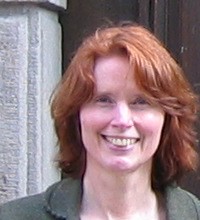Patterns (from the class as a whole) in process drafts: I then gave you some general feedback about what kinds of revisions drafts by the class as a whole would benefit from. This list includes work on the introduction and conclusion; making clear distinctions between style (what is on the page) and process (how you write what ends up on the page) and discarding material focused on style (this essay is focused on process); use of specific examples (MORE!), organization (we discussed different organizational strategies- 1) going through each different process from beginning to end; 2) talking about invention across processes, then drafting across processes, revision across processes, and then reflecting on exceptions across processes), and making a series of clear observations/points with respect to your writing process. These observations/points should go beyond the obvious (=> I need to revise more) and get into planning how to change (what is the source of resistance to revision? how can it be overcome? what kinds of revision practices feel like you might WANT to do them - it is OK to refer to the handouts. . .).
Bishop.
We talked in depth about the tensions Bishop points out in terms of intrinsic and extrinsic goals and demands imposed on your writing. Extrinsic demands are from the outside - put on you by others in ways that make you feel like the writing does not really belong to you. Intrinsic goals are about what you want out of writing for yourself.
We came up with the following lists.
Extrinsic demands:
due dates
assignment criteria: constraints on content and organization, language style, content requirements, length, focus,
outline/templates;
citation-formatting;
stylistic demands,
grammar-correctness, ideas,
outside references,
standards for evidence + authority
* taking risks
*engaging in meaningful learning
Intrinsic goals
being able to distinguis genres
have authority w/i different genres
identify personal style
get "better"
better editing skills
take risks
grow as a writer
vocabulary
meet external + internal expectations (at the same time)
achieve credibility
clarity/precision of language
Bishop's essay makes the point that despite the conflicts between these two sets of goals/expectations- everything you write is YOUR writing. It belongs to you and you will grow through its practice in terms of what you put into it. The rest of her essay is a discussion of creating fat, generous, full-breath drafts that offer lots of room for experimenting and growing = revising. Revision is growing. And thinking.
You then broke into groups and placed your self into one of Bishop's 4 stages - and picked two practices from her stages. = and gave them a shot.
Ostram
I gave a very bried presentation on Ostram's essay. His essay talks about the different ways writers see themselves (p. 29) and points out that most of us see ourselves in many different ways as we write=> that we have many, conflicting writing selves who direct our relationships to and feelings about our writing.
He then goes on to suggest that our relationship to revising can be intentionally shaped by stepping into different selves/personae. These selves define specific relationships to writing and allow us to see our work in new ways. I suggested that you read through these selves (masks = from theater, where the performer sybollically becomes a different character) and step into masks that you feel would allow you to re-vision your work constructively.
For next week: turn in the final draft of your process narrative. Due as an attachment to the Writing account.
We will talk about Gee (which we didn't get to this week); and about "History of Writing Technologies," Brian Gabrial, "Through the Door: Digital Production," Scott McCloud.
I will also introduce the portfolio project.
Great class and see you next week.

No comments:
Post a Comment